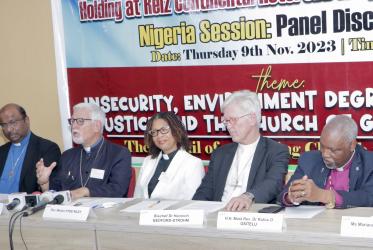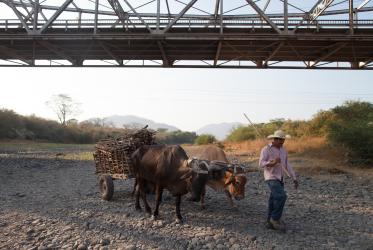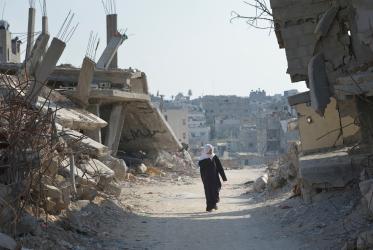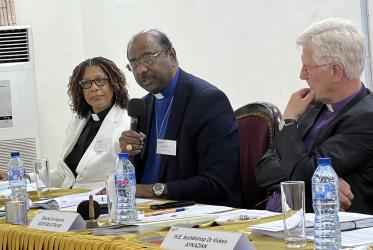The executive committee will focus on follow up from the assembly, planning for 2023—including the budget and programme plans—and remaining statements from the assembly with the aim of finalizing and approving them. The statements are a response to critical situations affecting the fellowship of WCC member churches.
The agenda also includes intergenerational discussion with Bossey students.
Executive committee members will also discuss community building, and will review the assembly mandate. The agenda includes monitoring 2022 and essential preparations for 2023, including the budget, programme plans, and preparation for the central committee in June 2023. The executive committee will meet at the Ecumenical Centre in Geneva on 8 November for roundtable discussions with WCC staff and to learn more about the Green Village property development project.
Bishop Dr Heinrich Bedford-Strohm, WCC central committee moderator, said he is looking forward to the first meeting of the newly-elected WCC executive committee. “The Karlsruhe assembly gave a big push to the ecumenical movement,” he said. “The experience of sister and brotherhood between Christians of various national, cultural, and denominational backgrounds was a strong witness to a world struck by division, hate, and violence.”
An important task of the newly elected WCC leaders will be to design the WCC’s programmatic work in the coming years in a way that strengthens a witness of unity and reconciled diversity in the ecumenical movement.
“The WCC must be a strong public voice in international civil society,” said Bedford-Strohm. “The most urgent tasks include further efforts to find ways of overcoming the terrible violence caused by the Russian invasion of Ukraine,” he said. “We must continue to be in dialogue with the churches in Ukraine and in Russia to look for ways to a just peace, which does not reward the violation of International Law by the Russian leadership.”
Bedford-Strohm concluded “I see the motto of the Karlsruhe Assembly as the central guideline for our work in the coming years: “Christ’s love moves the world to reconciliation and unity.”
Executive committee members will also receive an orientation on consensus decision-making procedures, subcommittee agendas, policies, and procedures related to its fiduciary responsibility for the governance of the WCC. As a new executive committee, members will also work to develop a sense of community and learn more about the WCC as a fellowship of churches.
In taking stock of the mandate and experience of the WCC 11th Assembly, the executive committee will consider implications for the next 8-year cycle of WCC work engaging churches and partners on a pilgrimage of justice, reconciliation, and unity.
The executive committee will also monitor implementation of decisions by the past executive committee, programmatic work, membership matters, and institutional strategies.
During the assembly, the WCC central committee elected 20 of its members to serve as the WCC executive committee of the WCC, along with the leadership of the central committee, which includes the moderator, two vice moderators, and the WCC general secretary, as well as the moderators of its programme and finance committees.
Photos of the WCC executive committee meeting
The 11th Assembly of the World Council of Churches in Karlsruhe, Germany






